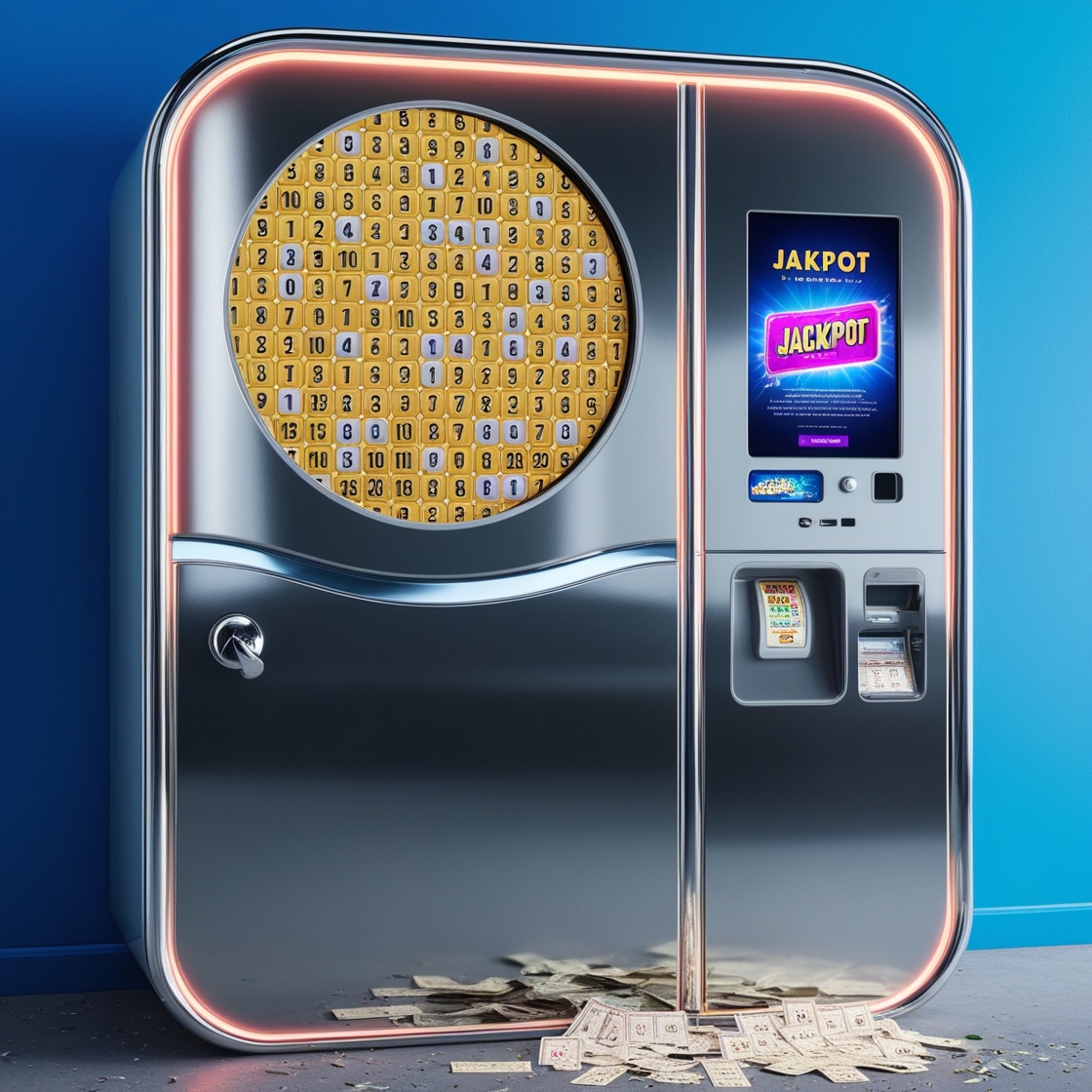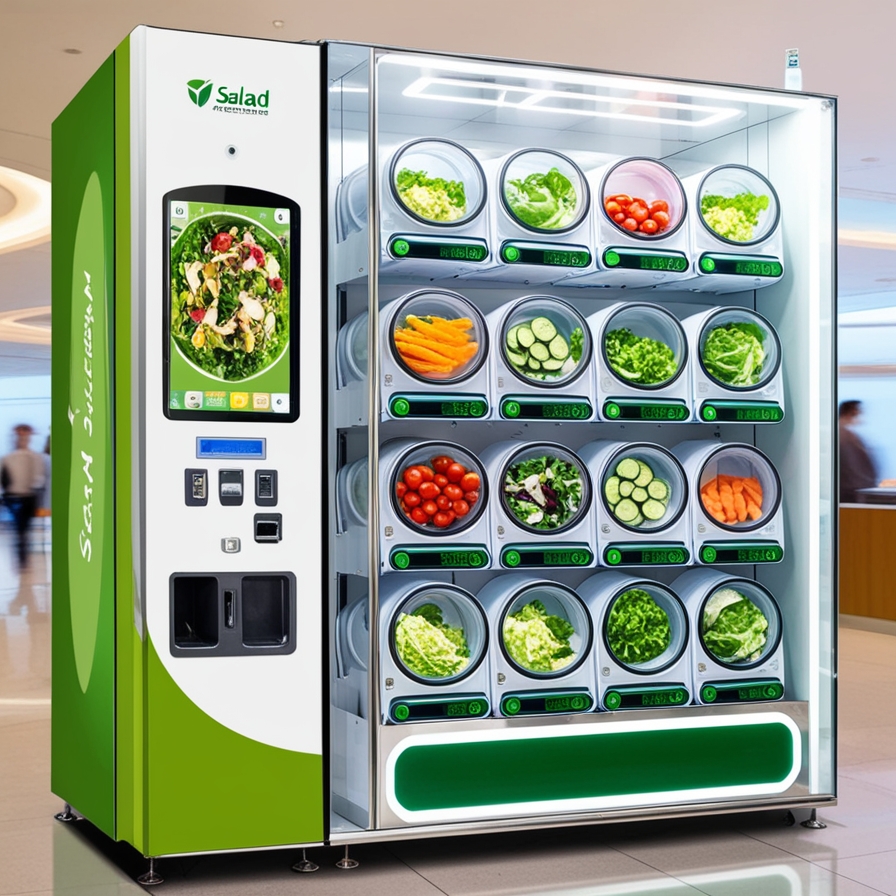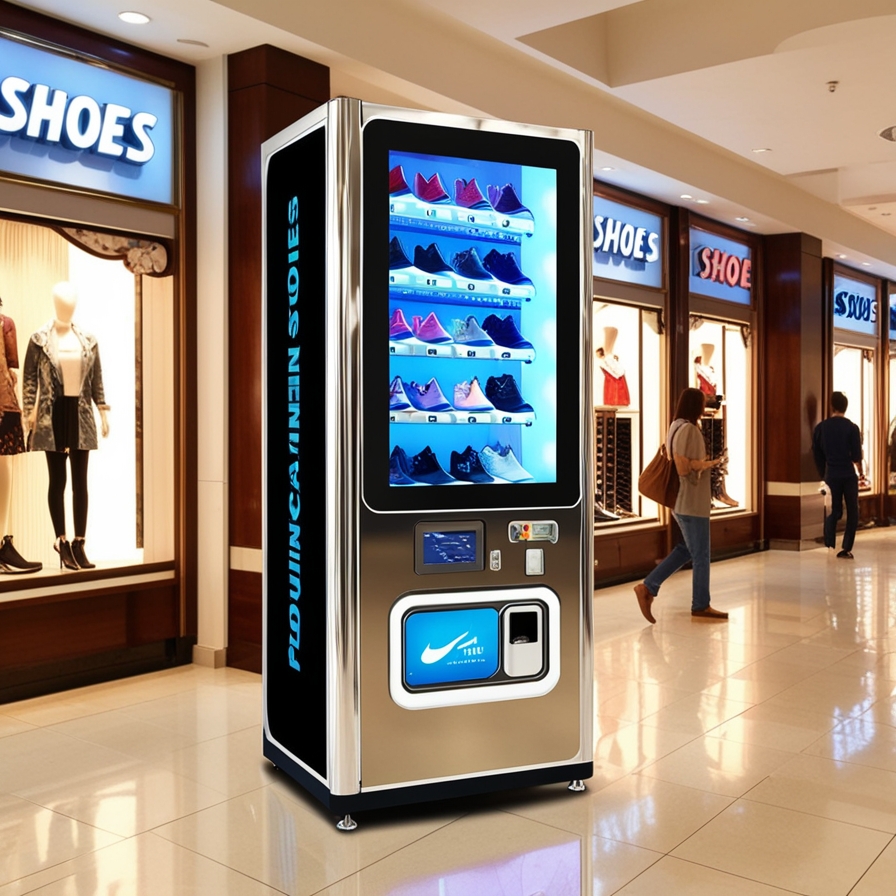Welcome to the captivating realm of lottery vending machines—a modern twist on traditional lottery play that has transformed accessibility for lottery enthusiasts worldwide.
These machines meld convenience with technology to offer players a seamless, engaging lottery experience.
In this blog post, we’ll delve into the essence of lottery vending machines, examine the various types available, unpack how they operate, and assess their profitability.
Join us as we explore the innovative features and benefits of these machines that are setting new standards in the lottery industry!
Table of Contents
ToggleLottery Vending Machines
A Gateway to Effortless Gaming
Lottery vending machines, also known as LVMs or lottery ticket vending machines, are innovative self-service lottery machines that automate the purchase and sometimes the payout of lottery tickets.
These machines can be strategically placed in a variety of high-traffic venues, such as grocery stores, laundromats, bars, and gas stations—similar to the placement of traditional soda vending machines.
The design and functionality of these machines are tailored to make the lottery experience as easy and user-friendly as possible.
Customers can swiftly choose their preferred game from a variety of options available, including powerball vending machines or scratch off machines, select their numbers, and pay for their tickets—all through a straightforward, automated interface.
This process not only simplifies the buying experience but also encourages more frequent purchases, potentially increasing the profitability of these lotto vending machines.
Exploring the Diversity of Lottery Vending Machines
The market offers a variety of lottery vending machines, each tailored to meet specific user needs and operational settings. Let’s delve into the most popular types:
- Standalone Lottery Vending Machines
Often found in convenience stores, supermarkets, and gas stations, these lottery ticket vending machines are freestanding units equipped with a touchscreen interface.
Players can easily navigate through different lottery games, select their numbers, and purchase tickets.
These machines are connected to a central lottery system, ensuring all tickets are valid and officially recognized.
- In-Line Lottery Vending Machines
Integrated into retail checkout counters, in-line lottery vending machines are perfect for supermarkets and convenience stores.
They link directly to the store’s point-of-sale system, allowing customers to conveniently add lottery tickets to their purchases.
These machines, positioned near the cashier, streamline the purchasing process, blending effortlessly into the shopping experience.
- Mobile Lottery Vending Machines
A newer addition to the lineup, mobile lottery vending machines are innovative and versatile, designed for mobility.
Mounted on vehicles, they can be deployed to various public gatherings like fairs and events, transforming these vehicles into mobile ticket-selling stations.
These mobile units are equipped with all the essential features of a traditional lottery vending machine, enabling on-the-go ticket purchases and increasing accessibility at public events.
Each type of machine not only caters to specific environments and customer behaviors but also enhances the overall experience by offering convenience and swift service.
Whether customers are looking to quickly buy a ticket at their local store or at a bustling public event, these machines make playing the lottery more accessible than ever.
Now that we’re familiar with the types of lottery vending machines, let’s delve into how they function. Here’s a detailed breakdown of the operational mechanics of these sophisticated devices:
Game Selection:
Upon approaching the machine, players are greeted by an intuitive touchscreen interface where they can browse through various lottery games. Each player selects their preferred game, whether it’s a traditional draw game or an instant scratch-off.
Choosing Numbers:
After selecting the game, players can either manually pick their numbers or use the ‘quick pick’ option, where the machine automatically generates a set of numbers. This feature is particularly appealing for those who prefer a faster, more random selection process.
Payment Process:
Once the numbers are chosen, it’s time to make the payment. Modern lottery vending machines are equipped to accept a wide range of payment methods, from cash and debit cards to advanced options like mobile payments, ensuring accessibility for all users.
Ticket Issuance:
After the payment is verified, the machine prints the ticket. This ticket includes all vital information such as the selected numbers, game type, and a unique barcode that is essential for later verification and prize claims.
Checking Winnings:
If a player wins, they can either manually check the ticket or scan it at the machine using the built-in barcode scanner. For smaller prize amounts, some machines are capable of dispensing winnings directly, adding a layer of convenience. Larger prize claims may require a visit to an authorized retailer or the lottery headquarters.
Handling Errors:
Equipped with sophisticated technology, lottery vending machines can detect and handle errors automatically. If there’s an issue during the ticket printing process or if a ticket is deemed invalid, the machine will promptly issue a refund, ensuring trust and reliability in every transaction.
This seamless integration of technology not only simplifies the process of purchasing lottery tickets but also enhances the overall user experience, making it more efficient and enjoyable.
Whether you’re a casual player or a regular enthusiast, these machines provide a straightforward and reliable way to participate in your favorite lottery games.
Are Lottery Vending Machines a Profitable Venture?
The profitability of lottery vending machines (LVMs) is indeed substantial, making them a valuable asset for both lottery operators and retail venues.
Let’s explore the factors that contribute to the financial success of these machines:
Boost in Sales:
LVMs significantly increase lottery ticket sales by providing a convenient and accessible way for players to purchase tickets. Positioned in high-traffic areas, these machines enhance the visibility of lottery games, attracting new customers and motivating regular players to purchase more frequently.
Cost Efficiency:
Operating LVMs reduces the necessity for additional staff, thereby saving on labor costs including salaries, training, and benefits. These machines operate autonomously around the clock, ensuring continuous sales without the need for breaks or downtime.
Enhanced Upselling:
Lottery vending machines are equipped with technology that allows them to promote and sell add-ons such as scratch cards, multi-game tickets, and special promotional entries. These upselling opportunities significantly increase the average transaction value, boosting overall revenue.
Valuable Data Collection:
LVMs gather crucial data regarding customer buying patterns, preferred games, and sales performance. This data is instrumental in refining marketing strategies, tailoring game selections, and optimizing prize allocations to enhance profitability.
Revenue from Licensing Fees:
Lottery operators can levy licensing fees on retailers who install LVMs at their premises. These fees, combined with the increased customer footfall drawn by the machines, provide an additional revenue stream for operators.
Unmatched Convenience:
The 24/7 availability of LVMs eliminates the inconvenience of long lines and restricted retail hours, offering players the freedom to purchase tickets at their leisure, anytime and anywhere.
Diverse Game Offerings:
LVMs typically host a wide range of lottery games, from instant scratch-offs to traditional draw games and even multi-state lotteries. This variety ensures that there is something for every type of lottery enthusiast, enhancing user engagement and satisfaction.
The Florida Lottery has seen remarkable success since its inception in 1988, generating over $25 billion in scratch-off ticket sales alone.
The fiscal year of 2008 marked a record-breaking period with sales surpassing $2.421 billion.
By December 5 of the 2010 fiscal year, sales had nearly reached $2.077 billion.
Amanda Clements, a spokesperson for the lottery, highlighted the crucial role scratch-off games play in their portfolio, accounting for more than 53% of total lottery sales. In 2010, these games contributed over $396 million to educational initiatives.
Looking ahead, the lottery vending machine market is poised for exciting developments.
With the help of infographics, tables, and charts, key insights into the growing demand, customer preferences, distribution channels, and the overall state of supply and demand will be visually represented.
These tools will not only enhance understanding but also spotlight potential growth opportunities in this dynamic sector.
conclusion
In conclusion, lottery vending machines represent a significant innovation in the lottery industry, offering convenience, efficiency, and enhanced sales opportunities.
The success stories, such as that of the Florida Lottery, demonstrate the potential for these machines to substantially increase ticket sales while contributing to important societal causes like education funding.
As technology advances and consumer preferences evolve, the market for lottery vending machines is expected to expand further, providing even more opportunities for growth and innovation.
The strategic placement of these machines in high-traffic areas, combined with the integration of advanced payment and operational technologies, makes them not only a practical solution for lottery operators and retailers but also a lucrative business venture.
With the right analysis and adaptation to market trends, the future of lottery vending machines looks both promising and exciting.
FAQ’s
What are self-service lottery machines?
Self-service lottery machines are automated kiosks where customers can buy lottery tickets without the need for cashier assistance.
How do I use a lottery machine?
To use a lottery machine, select your desired game on the touchscreen, choose your numbers or opt for a quick pick, and then follow the prompts to pay and print your ticket.
Can you explain how to operate a lotto machine?
Operating a lotto machine involves choosing a game, selecting your numbers manually or through a quick pick option, inserting payment, and printing the ticket directly from the machine.
What are the steps to use self-service lottery machines?
To use self-service lottery machines, simply touch the screen to start, pick your lottery game, select your numbers or quick pick, insert payment, and take your printed ticket.
How do I use self-service lottery machines at a Florida location?
Using self-service lottery machines in Florida involves touching the screen to activate it, selecting your game, choosing your numbers, paying for the tickets, and collecting the printed tickets from the machine.



